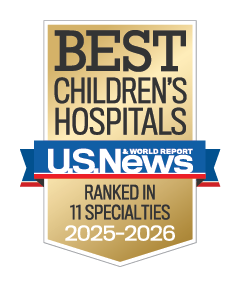

Juvenile myelomonocytic leukemia (JMML) is a rare but aggressive childhood leukemia. While hematopoietic stem cell transplantation is curative for some patients, approximately half of all patients will still have their leukemia return following a transplant.
Recent studies have identified that the number of changes in the DNA (mutational burden) and the degree of DNA methylation (a chemical change to DNA) are both predictive of the outcome in JMML. In an effort to improve outcomes for patients with newly diagnosed JMML, a multi-center study is underway that determines each patient’s treatment based on a blood test.
Under the auspices of the Therapeutic Advances in Childhood Leukemia & Lymphoma (TACL) consortium, a Phase 1/2 clinical trial led by UC San Francisco pediatric oncologist Elliot Stieglitz, MD, will risk stratify patients based on mutational burden and DNA methylation to receive different therapies.
“This is the first time we will stratify patients using a DNA methylation test and be able to tailor treatments to individual patients,” said Stieglitz, a UCSF associate professor of Pediatrics. “We know that patients with lower amounts of DNA methylation have better outcomes and may not require a stem cell transplant. Patients with higher amounts of DNA methylation have poorer outcomes and will require a stem cell transplant following their trial therapy.”
The primary objective of the study is to determine the safety of combining two targeted treatments (trametinib with azacitidine) for patients with newly diagnosed lower-risk JMML and to determine the safety of combining trametinib with azacitidine in addition to traditional chemotherapy for patients with newly diagnosed high-risk JMML. Lower-risk patients have the option of avoiding a stem cell transplant entirely if they respond to the targeted treatments. High-risk patients will proceed to a stem cell transplant after two courses of their combination therapy.
The researchers will collect sequential samples from all patients who consent to optional studies to better understand JMML. The trial will provide an opportunity to investigate the genetic, biochemical and functional responses to trametinib and azacitidine in patients with JMML.
“We want families and doctors to know about this clinical trial because it will give patients access to the medications that have been shown to have the most promise in this disease,” said Stieglitz.
The study will determine the event-free survival in patients with lower-risk JMML treated with trametinib and azacitidine who do not proceed to stem cell transplant. The trial will also determine the rate of molecular response (pre-transplant) using trametinib plus azacitidine with chemotherapy in patients with newly diagnosed high-risk JMML.
“The TACL consortium is excited to conduct this important new clinical trial, T2020-004: Risk stratified treatment for patients with newly diagnosed juvenile myelomonocytic leukemia: A Phase I/II non-randomized study of trametinib and azacitidine with or without chemotherapy, which could be paradigm-changing for children with JMML,” said Alan S. Wayne, MD, TACL medical director.
Funding for this research is provided by the National Institutes of Health National Cancer Institute.
About TACL
The Therapeutic Advances in Childhood Leukemia & Lymphoma (TACL) consortium was formed in 2005 as a response to a need for a consortium that is focused on new drug studies in childhood leukemia and lymphoma. The Therapeutic Advances in Childhood Leukemia and Lymphoma (TACL) Consortium headquartered at Children’s Hospital Los Angeles is dedicated to first-in-pediatrics studies designed to accelerate the development of promising new therapies for hematologic malignancies of childhood. The TACL consortium is currently composed of 34 leading academic institutions, including UCSF Benioff Children’s Hospital, from the United States and Australia, all with extensive leukemia expertise and the necessary resources and trial infrastructure to conduct multi-center clinical trials.
About UCSF Benioff Children’s Hospitals
UCSF Benioff UCSF Benioff Children’s Hospitals are among the nation’s leading pediatric specialty hospitals, according to U.S. News & World Report 2023-24 rankings. Their expertise covers virtually all pediatric conditions, including cancer, heart disease, neurological disorders, pulmonology, diabetes and endocrinology, as well as the care of critically ill newborns. The two campuses in San Francisco and Oakland are known for basic and clinical research, and for translating research into interventions for treating and preventing pediatric disease. They are part of UCSF Health, whose adult hospital ranks among the top medical centers nationwide and serves as the teaching hospital for the University of California, San Francisco, a national leader in biomedical research and graduate-level health/sciences education. Visit www.ucsfhealth.org.



